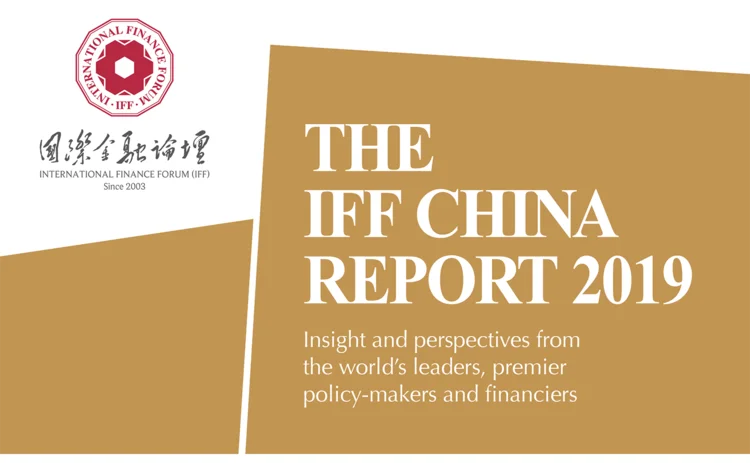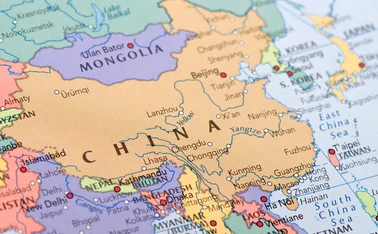
The IFF China Report 2019: Foreword
US-China relations key to prosperous global economy

The release of the fourth edition of the IFF China Report comes at a critical period for China-US trade negotiations, and at an important juncture in trade and investment relations between the world’s economic powers.
The collaborative spirit that prevailed in the immediate aftermath of the global financial crisis that resulted in a more proactive Group of 20 and co-ordinated policy action has diminished. Slower global growth and increased levels of inequality, particularly within nations, has resulted in increases in nationalistic and inward-looking policy-making.
In particular, the traditional global rulemaker, the US, has engaged in a series of efforts to reset long-standing trade relations that it now believes are unfair. Indeed, its ongoing trade dispute with China – the US moved to impose tariffs on an additional US$200 billion of Chinese imports in September 2018 – hangs like a storm cloud over the global economy.
A number of officials on both sides believe a trade deal is within reach ahead of the next US tariff increase – particularly after the US delayed its own deadline for escalation originally set for March 1. But potential obstacles remain, including the US being prepared to quickly roll back existing tariffs and China’s willingness to genuinely open up its markets, especially in the area of technology and, to a lesser extent, financial services.
A trade deal has the potential to reset recent China-US relations and bolster confidence in the global economy. However, even if a deal is reached, tension between the world’s two largest economies has the potential to flare up again, with obvious faultlines related to areas such as intellectual property, market access, state subsidies and national security.
The ability to resolve disputes in a peaceful and productive manner will be vital moving forward. To achieve this, multilateral mechanisms will require upgrading.
The IFF China Report 2019 aims to offer insights and perspectives regarding some of these important developments, offering the thoughts of contributors based in China and many other nations. To reflect this focus, the report is divided into five sections: New globalisation – the path to the future; redesigning the international trading and monetary system; the Belt and Road Initiative (BRI); financial deepening, fintech development and green financing; and the Bay Area Development.
The IFF China Report 2019 also includes the second annual BRI Survey of central banks. The results from the survey indicate that the 28 central banks that responded are relatively sanguine about some of the rhetoric that has emerged regarding the BRI during the past couple of years. They universally viewed the BRI as an important measure promoting globalisation, and indicated BRI projects in their jurisdictions were free of political and financial pressure.
That may change. The negative US reaction to the decision in March by Italian prime minister Giuseppe Conte to sign a non-binding memorandum of understanding aimed at increasing Italy’s participation in the BRI – making it the first G7 nation to do so –
highlights a likely source of tension moving forwards.
We are, once again, privileged and extremely grateful for the support of the global leaders, policy-makers, finance experts, business leaders, politicians and scholars who have contributed to and supported the publication of the IFF China Report. We hope it provides you with important insights and fresh perspectives.


Only users who have a paid subscription or are part of a corporate subscription are able to print or copy content.
To access these options, along with all other subscription benefits, please contact info@centralbanking.com or view our subscription options here: www.centralbanking.com/subscriptions
You are currently unable to print this content. Please contact info@centralbanking.com to find out more.
You are currently unable to copy this content. Please contact info@centralbanking.com to find out more.
Copyright Infopro Digital Limited. All rights reserved.
As outlined in our terms and conditions, https://www.infopro-digital.com/terms-and-conditions/subscriptions/ (point 2.4), printing is limited to a single copy.
If you would like to purchase additional rights please email info@centralbanking.com
Copyright Infopro Digital Limited. All rights reserved.
You may share this content using our article tools. As outlined in our terms and conditions, https://www.infopro-digital.com/terms-and-conditions/subscriptions/ (clause 2.4), an Authorised User may only make one copy of the materials for their own personal use. You must also comply with the restrictions in clause 2.5.
If you would like to purchase additional rights please email info@centralbanking.com







